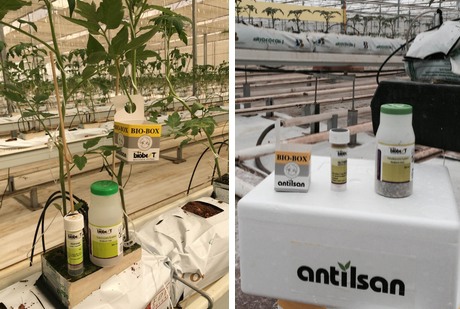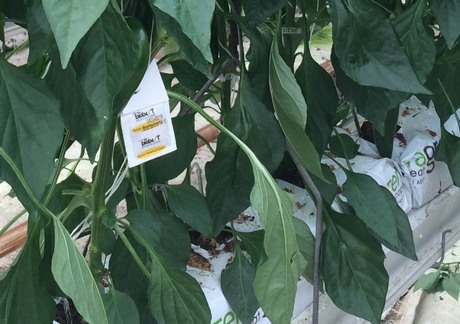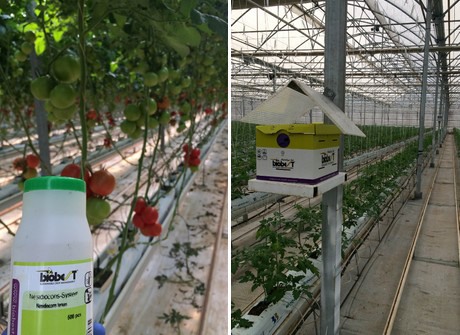
At the Growtech Eurasia last month, we sat down with Kris Fivez of Biobest; a global supplier of biological crop protection, control and pollination products. "Due to their prior focus on the export to Russia, Turkish growers want to grow a crop that is 100% free of pests. This is something that is a challenge for them, but we are helping them to achieve great results."

Kris Fivez and Hamza Kuh of Biobest at the Growtech Eurasia in Antalya, Turkey, last month.
Strict border control
All of the shipments with Turkish greenhouse vegetables that enter Russia, are being audited for exceedings of MRL’s. The Russian authorities are very strict in this respect; Even with the slightest infringement, the entire batch can be sent back to the grower. "Just like in Europe, Turkish IPM growers need to achieve a balance in the crop between beneficial insects and harmful insects and be sure that the pest has a minimal economic effect to the crop. That is why their focus has shifted from chemical crop protection to the much more flexible biological crop protection; they can harvest when they want an do not need to worry about MRL exceedings anymore.
Thrips & Whitefly
According to Fivez, the Turkish growers experience the same common pests like the growers in Europe. "There is a lot of thrips in bell peppers, whitefly, aphids and spider mites. On top of this the growers are dealing with more specific pests like Creontiades pallidus, depending on the season and the year. Two years ago this was a big problem. At this moment, also Tuta Absoluta is a big problem."The focus for Biobest in Turkey is directed on the use of beneficial insects and mites in pepper and tomato. The cornerstone of the strategy in Turkish tomato cultivation is the use of the predatory bug Nesidioris tenuis, which predates on Tuta eggs and whitefly. In the Turkish pepper cultivation, the minute pirate bug Orius is the most voracious beneficial insect against thrips. During summer conditions, Swirksii can be seen as most effective. Also in Turkish pepper cultivation, Biobest Nutrimite system is used in order to feed the beneficial mites and to achieve a strong population of predatory mites, even before trips is present in the crop.

Antilsan
Biobest's products are made available via the expertise and network of the local distributor and partner Antilsan. "In order to achieve the best results, Antilsan’s biocontrol specialists are visiting the growers on a regular basis and help them with the application and introduction of the beneficials. Step by step the growers are learning more about the use of beneficials."For more information:
Biobest
Kris Fivez
[email protected]
www.biobest.be
